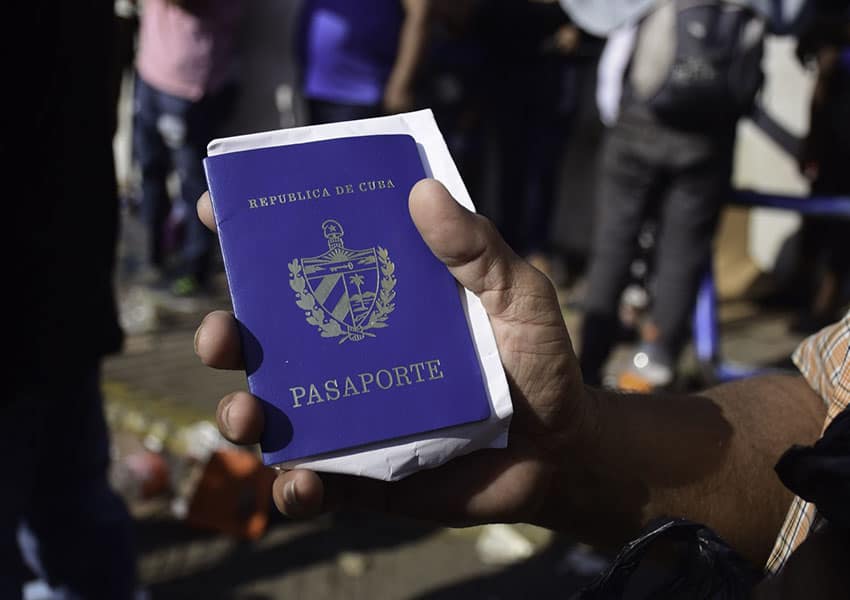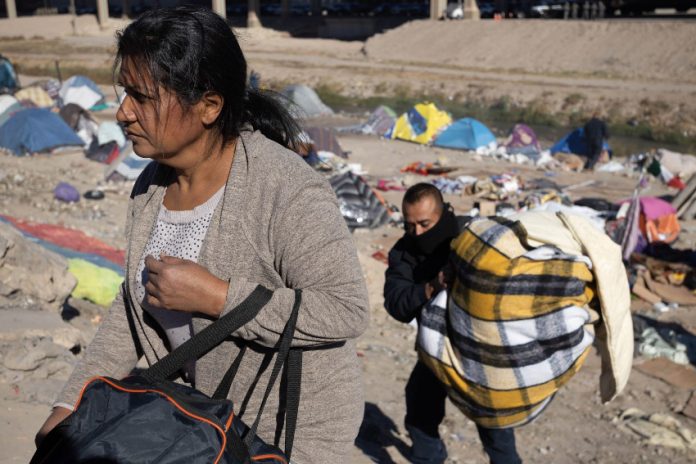The United States is set to start using fast-track asylum screenings at its border with Mexico, the news agency Reuters reported Thursday.
Citing five unnamed sources including United States officials, Reuters said that the move is part of U.S. President Joe Biden’s efforts to combat the record high level of illegal crossings into the U.S. from Mexico.
Amid calls for the United States government to do more to stop illegal immigration via Mexico, Biden visited the border earlier this month.
The Reuters sources said that the rapid screenings would determine whether migrants arriving at the U.S. border have a legitimate asylum claim, such as fear of torture or persecution in their country of origin.
Two U.S. officials told Reuters that a group of Biden administration officials traveled to the U.S.-Mexico border this week to prepare for the implementation of fast-track asylum screenings.
However, the news agency said it was unclear when they would begin. The sources said that migrants detained by U.S Customs and Border Protection (CBP) personnel would have remote interviews with an asylum officer within days of their apprehension.

If an asylum seeker was unable to prove a fear of persecution they would be deported, Reuters said.
Mexico recently agreed to accept as many as 30,000 expelled Venezuelan, Nicaragua, Haitian and Cuban asylum seekers per month.
Fast-track asylum screenings could help the U.S. government deter illegal border crossings by demonstrating that asylum seekers will be deported promptly if they don’t establish a credible fear of persecution.
But migrants’ advocates expressed concerns about the planned policy, which is similar to pilot programs implemented during the government led by former U.S. President Donald Trump.
“President Biden rebuked rushed asylum processing two years ago in Executive Order 14010, only to now be poised to bring back this cruel and draconian policy,” said Mary Meg McCarthy, executive director of the Chicago-based National Immigrant Justice Center (NIJC).
“The president promised hope and fairness to asylum seekers, not a Groundhog Day where we continually relive the prior administration. It is past time for this administration to show the courage and leadership to treat people fleeing persecution with dignity. Rapid deportation and CBP detention are not solutions, we need to uphold our obligations to protect asylum.”
Heidi Altman, policy director at the NICJ, described the prospective policy as a “mockery of justice.”
“Imagine fleeing your home and loved ones, arriving at a new country to seek safety, and then being forced to present a complicated legal claim less than two days later, from jail,” she said.
Douglas Rivlin, director of communications for the pro-immigrant organization America’s Voice, said on Twitter that “accuracy will suffer if we govern the asylum process with a stop watch.”
“People fleeing danger need a process to have their claims heard and evaluated accurately because it’s a matter of life and death. Biden should emphasize getting it right, not getting it fast,” he wrote.
With reports from Reuters
